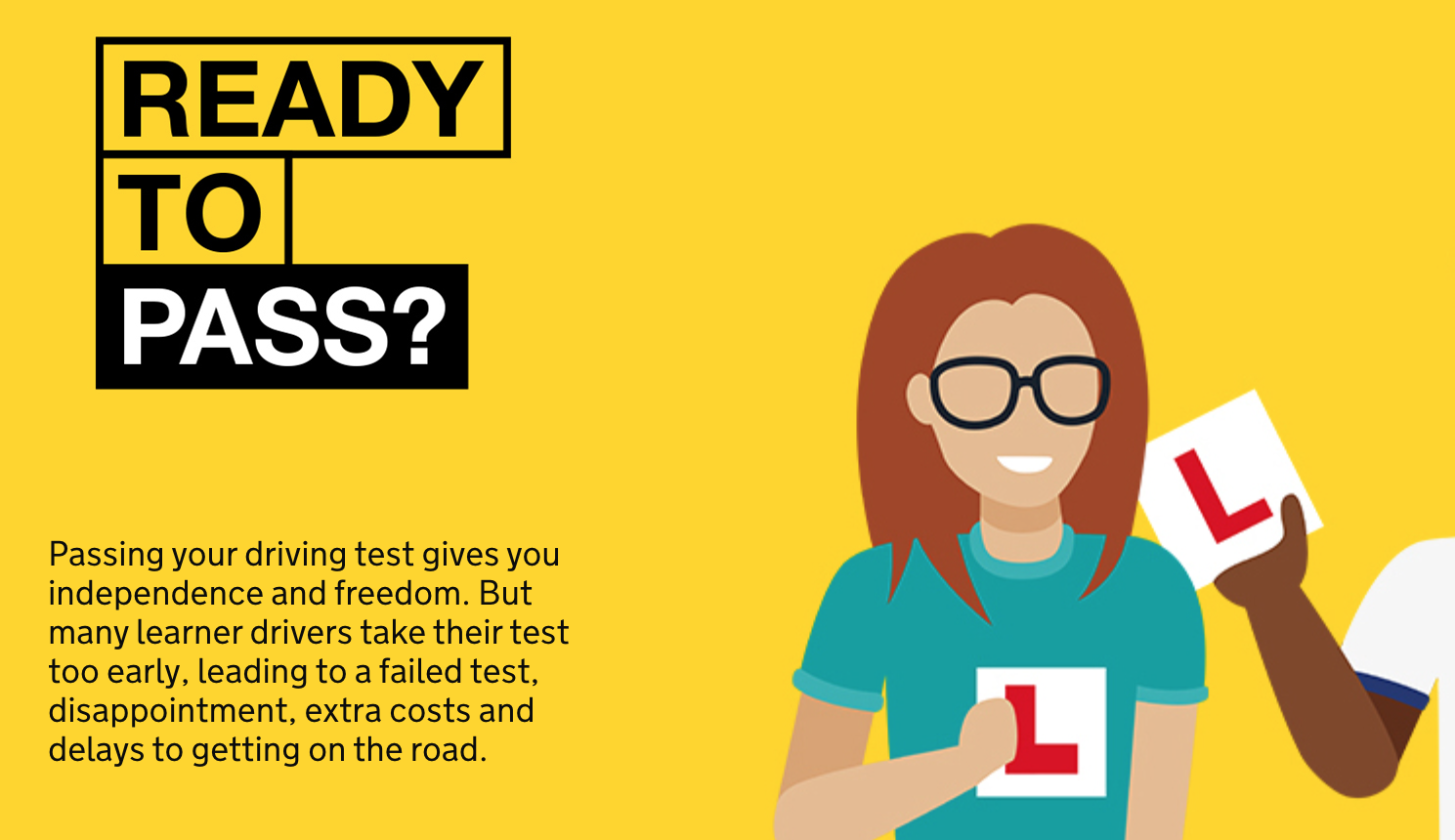It’s understandable to be impatient to pass your test when you’re learning to drive. After all, being able to drive represents freedom, independence and more opportunities in your personal and professional life.
Whether you’re 18 or 38, everyone has individual and important reasons for wanting to pass their test as quickly as possible.
Unlike other exam situations, taking and passing (or failing) a driving test has more complicated consequences.
A driving test is assessing your ability to safely and competently operate a vehicle which is capable of causing harm to you or to others. To keep everyone safe out on the road, driving tests must include strict standards and involve demonstrating a variety of different skills simultaneously, which is why they are often so challenging. Although frustrating, this is the only way to ensure that all drivers are well-equipped and experienced enough to be out on the road alone.
Why taking your test too soon can be problematic
A good driving instructor will let you know as soon as they feel you are ready to take your driving test – and they’ll also strongly advise you against taking it if they feel you need more time to practice. But despite this being a best-practice approach, on average over 500,000 people still fail their driving test each year. According to DVSA data, in 2021 less than 50% of pupils passed their test first time – and of those who failed, 85% resulted in the test being terminated by the examiner. That’s why the government recently introduced their Ready To Pass initiative, a collection of resources which are aimed specifically at helping learner drivers to determine when they are confident and competent enough to prepare for their driving test.
It’s a change I welcome, having seen so many students attempt their test when they were far from ready due to pressure from family or friends (against my advice). Although it’s important to listen to your driving instructor’s guidance, ultimately it’s up to you when you book your driving test and whether you feel you are ready or not – which is why the Ready To Pass scheme is aimed directly at learner drivers.

What is Ready To Pass?
The government’s Ready To Pass campaign was put together in response to the consistently high failure rate for driving tests in the UK. Using data gathered pre-pandemic and during 2020 and 2021, the DVSA concluded that insufficient information was available to learner drivers to enable them to make a logical (rather than emotional) decision on whether they were ready to take their test. Taking your driving test too early is not only detrimental to you (resulting in knocked confidence, delays and extra costs), it’s also costly to the government, causing additional pressure on already stretched test centres.
The Ready To Pass campaign offers a variety of easy-digest, engaging resources to help you understand what’s involved in taking and passing your test. These include a checklist to measure your progress against, useful articles on various aspects of the driving test itself and reassurance on what to do if you have booked your test, but decide you need more time.
What should I do if I decide I’m not ready to take my driving test?
One important thing the Ready To Pass campaign highlights is that delaying your driving test is no big deal. It’s much better to be honest with yourself and take the extra time you need to prepare than to force it and fail. It’s completely free to change your driving test appointment, provided you do so 3 full working days before it’s scheduled.
I’m finishing this article with some advice I give my students which goes beyond the practical resources you’ll find within Ready To Pass. Remember – the most important thing is that you and others are safe out on the road, so there’s no shame in delaying your test if you need to. Here are some tips to bear in mind as you consider booking your driving test:
- Listen to your gut: Although your driving instructor should only advise you to take your test when you feel ready, sometimes you may disagree and want more time to prepare. This is absolutely fine and if you want to wait a little longer, be sure to let them know without feeling as though you have to force yourself to go ahead with the test based on their advice. Anxiety and lack of confidence can cause you to fail even if you are a skilled and competent driver – so be kind to yourself, share your concerns with your driving instructor and make sure you have your anxiety under control before you attempt your test.
- Try to avoid pressure from others: I have found during my decades as a driving instructor that often, pupils are learning to drive or feeling the pressure to pass quickly for someone other than themselves. Maybe a parent is pressuring you to pass so they don’t have to ferry you around anymore. Perhaps all your friends have passed their test, and you feel left out. Whatever external pressures may be weighing heavy on you, remember that this is your decision and yours alone. Your family and friends should want what’s best for you – which includes ensuring you’re safe when driving.
- Don’t be disheartened if you fail: Failing your driving test doesn’t necessarily mean you weren’t ready to take it. Nerves and anxiety play a major role for many people – and a simple mistake due to the exam conditions could easily cause you to fail. If you fail but feel you were ready (and your driving instructor agrees), practice and prepare then re-book your test again.